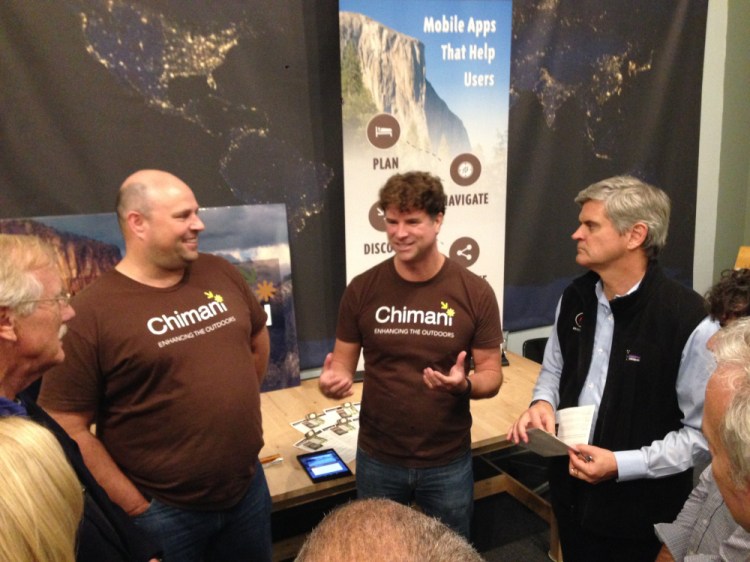Late last month, Maine’s old economy and its emerging new one passed each other on a winding road, moving in opposite directions.
The old economy was slowly descending from a moderate height, while the new one was speeding to a still-uncertain destination in the future.
Both economies found themselves in the news, and the contrast between them couldn’t have been clearer.
In the old economy, the Lincoln paper mill was closing, following similar shutdowns at paper mills in East Millinocket, Bucksport and Old Town. All were succumbing to shrinking demand for paper and competition from around the globe.
In the new economy, some of the state’s top new companies were competing to win a $100,000 prize from Steve Case, the founder of AOL. Other entrepreneurs and startups were trying to win a different $100,000 reward on the weekly NBC program “Greenlight Maine.”
And it’s not just entrepreneurs who are building the new economy. Sanford, a former mill town in York County, was announcing a plan to create a 32-mile broadband fiber network that would increase Internet speeds a hundredfold. Sanford’s action follows similar initiatives in Rockport and South Portland.
As Sanford Mayor Tom Cote put it, “Sanford is in transition from a classic New England mill town to a city that is trying to create an identity for itself.” The same could be said for Maine as a whole.
Maine’s old economy was built on natural resources in the land, forests and oceans. It is what sustained us for hundreds of years. And it still provides critically important jobs for thousands of Mainers.
But for a few generations now, that economy has been declining. We still have plenty of farms, plenty of wood being cut every day and plenty of fishing boats loading at the docks. Maine hasn’t lost its soil, trees or oceans. What we’ve lost is jobs.
In today’s mechanized and computerized economy, machines have replaced people. We can now run farms, cut and haul trees, bring fish to market or make paper without the benefit of large families and crowds of workers.
While the old economy has been fading, the new economy has been growing in new directions. Inc. magazine’s 2014 list of the 5,000 fastest-growing companies in the U.S. included 14 companies from Maine. Almost all were in the technology or renewable-energy fields.
Maine’s next economy has been quietly growing over the past decade, particularly in farming, renewable energy and technology, and is beginning to spread now to other sectors.
That’s happening, at least in part, because growing numbers of Mainers have stopped waiting for the old jobs to return, or for government to create prosperity. They have given up looking to the sky for a big company to parachute into Maine and provide jobs to everyone.
And while they’d like more support from Augusta and Washington, they seem to understand that in the end they must build the future themselves, with support from each other, from the ground up.
This is an important moment for Maine. Over the next decade, we will define the state’s direction for the next half-century or more. There are only two roads ahead for us.
One is a continuation of the road we’ve been on, where we spend much of our energy trying to bring back yesterday’s economy or looking to the outside world to save us.
On that road, we’ll continue to focus most of our energy on luring businesses to Maine by being a cheaper date than other states, or by handing out tax breaks without any strings attached.
It is a road that has taken us nowhere for decades, except to growing hardship, frustration and division.
The other road takes us toward a new economy in Maine, driven by our own innovators, entrepreneurs and smaller businesses and relevant to the 21st century.
It takes us to an economy where our focus is on growing jobs rather than attracting them. An economy that is more decentralized and resilient, better able to adapt to future technological and global changes, and less vulnerable to the whims of Wall Street, Washington, Berlin or Beijing.
Taking that road won’t be easy. We’ll have to rediscover the spirit of resourceful innovation and optimism that has defined Maine since its earliest days. We’ll have to let go of parts of the past that aren’t returning. And we’ll need to find broad agreement on what Maine’s future should look like, and the steps that we need to take to help us get there.
(Portions of this column have been excerpted from an upcoming book, “Maine’s Next Economy,” due out in November.)
Alan Caron is the owner of Caron Communications, a strategic consulting and communications firm based in Freeport. He can be contacted at:
alancaroninmaine@gmail.com
Send questions/comments to the editors.


